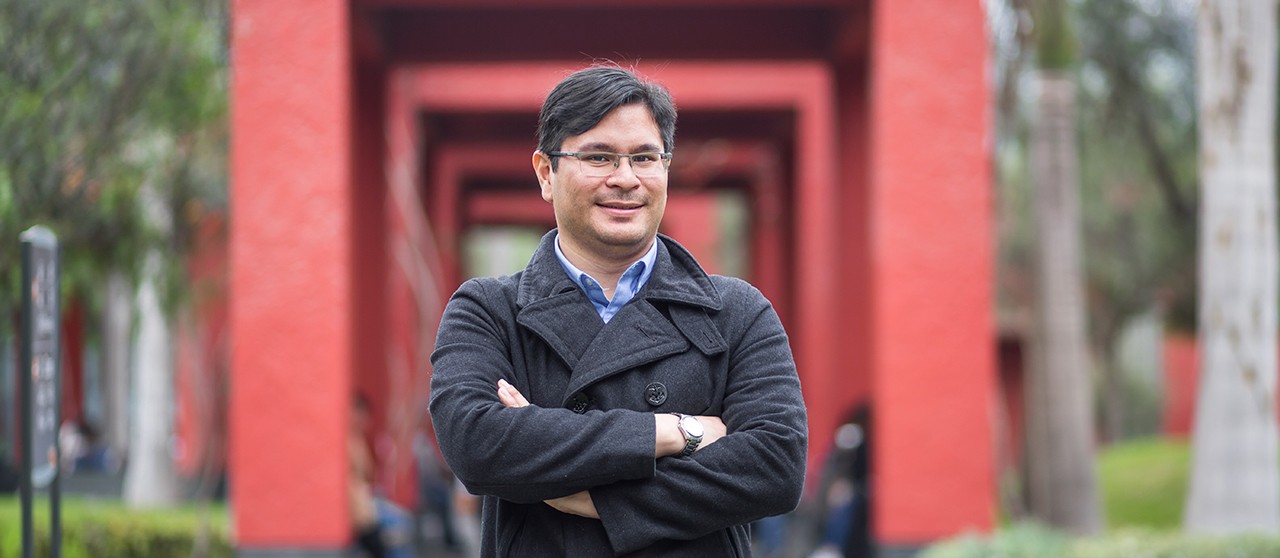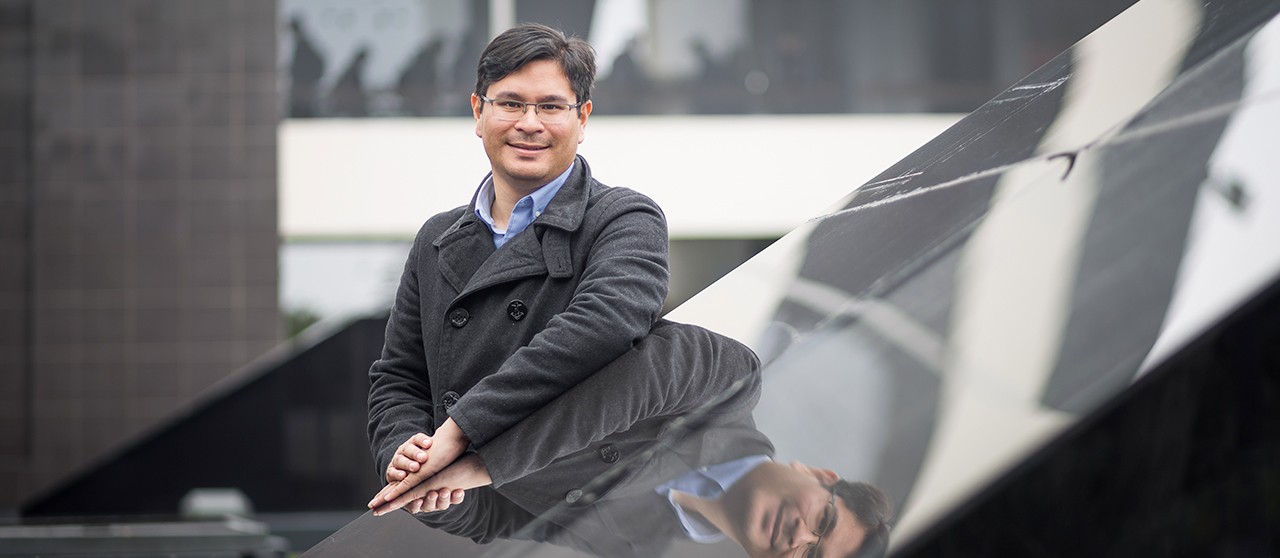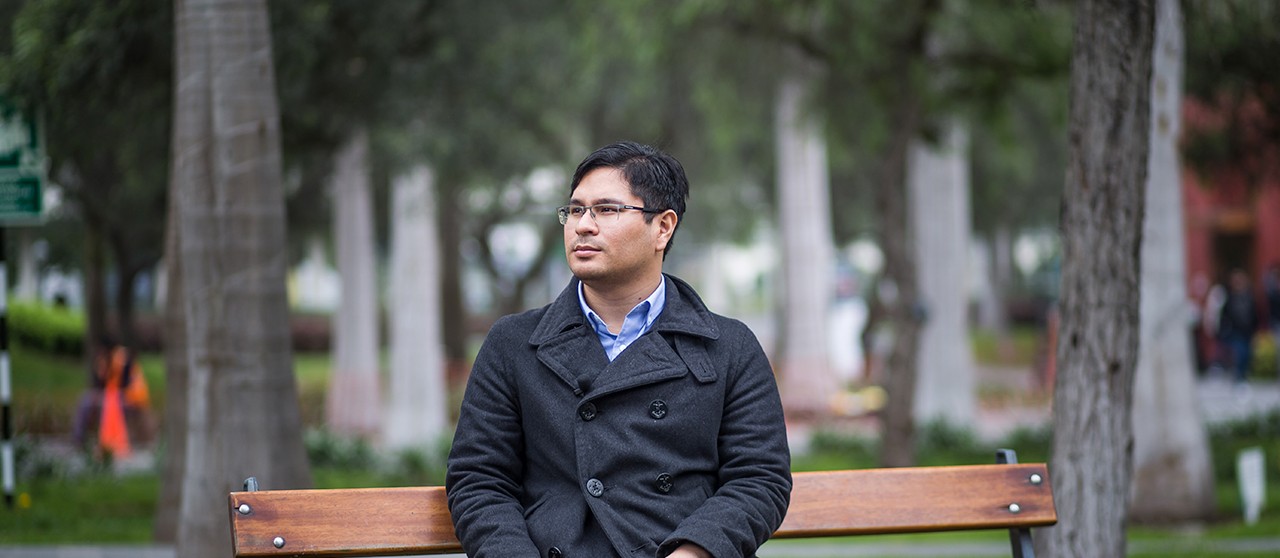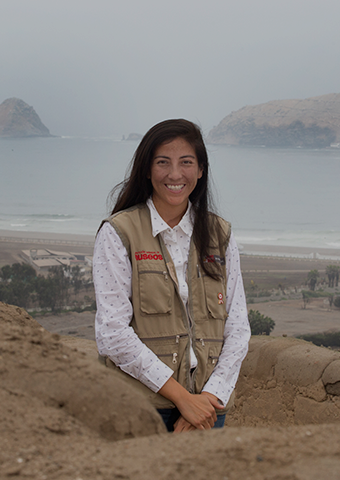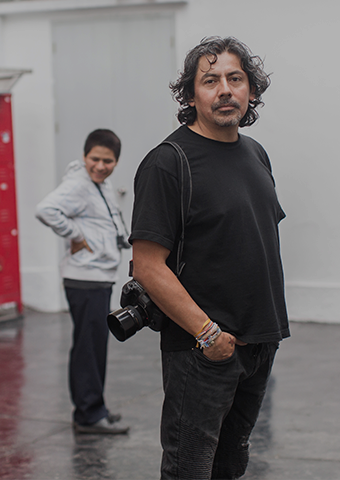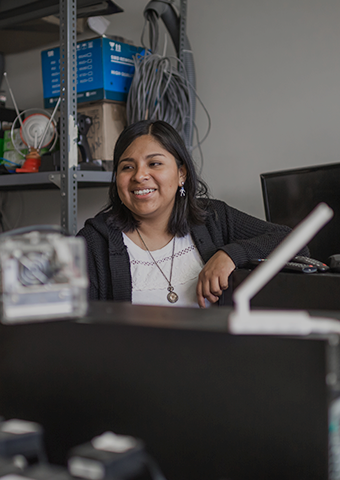“Interest in science is human, whether you have money or not. Interest is determined by curiosity.”
This means that talent in our schools could be wasted.
Not only in our schools, but also in universities; I have been a witness of that. Some mates of mine developed great projects, but that is all they were able to do. They did not continue. Their surroundings, the opportunities or the information they had were limited. In my case, for example, I was publishing (research papers) in local (scientific) magazines in my native language, but then I decided to take the leap and started writing in English. My first article ended up being published by the University of Cambridge (England). I think the same happens in schools, universities and the workplace. We must look for the way, the opportunity.
The fact that your research paper caught the attention of a renowned European university must have marked your life.
It helped me be aware. What would have happened if I had just published it in Spanish? The same happens in schools when a student shows interest and has talent, but not the adequate context… We must bear in mind that the human being is a political animal that depends on his relationship with others. Our personality develops according to our environment.
That is why the Peruvian Association of Astrobiology visits schools: to find children interested on science.
We must make up for the State’s lack of support and encourage children to study astrobiology.
What was the first school you visited?
An all-boys school in Ate Vitarte, in which selected students from different schools of the district gathered together. We made a selection because, based on experience, not everybody shows interest, when you call all students.
What did you expect and what did you find?
The first time we did not expect to have good results. We just wanted it to do it, to start and carry out workshops in order to keep working and developing.
And what happened?
We had a very good reception. First, only one school ―not quite sure― accepted our proposal, but, after that, every school wanted us. Their interest was such that we could not keep up. The work was intense. The workshops started two years ago on Saturdays and the experiments were related to astrobiology.
“First, only one school ―not quite sure― accepted our proposal, but, after that, every school wanted us.”
How did students react to experiments? It must have been incredible.
It was! That is what training research seeks to achieve: to train people through research. At the beginning, our informational level was accessible for everybody, but little by little we introduced scientific jargon, as it was necessary to get them closer to astrobiology. Our main objective was to teach them astrobiology and how to connect ideas, because astrobiology is a transdisciplinary science.
Astrobiology is not only focused on the study of life on earth but also outside our planet.
For that reason, we teach (students) to connect different ideas, as creativity is based on that, on connecting ideas that lead us to new missions, proposals, foundations. That is a ludic exercise in our workshops that will be useful for other courses, even for their own lives as they will learn to connect ideas and solve problems.
What was the experience with students you remember the most?
Once primary school students wearing white lab coats came to the workshop. They were very enthusiastic. They could not stop asking questions! As I told you before: their innate interest was increasing as we had offered them the opportunity. They were little scientists! Another experience occurred in Puente Piedra, where a group of secondary school students approached us to know where they could learn more about astrobiology, so we invited them to conferences and workshops conducted by the Peruvian Association of Astrobiology. We went to that school as one of my San Marcos’ students had attended it. We have found great interest in science in Puente Piedra schools.
Internet must have been key.
Yes. We have around 30 thousand followers on Facebook, and in our website, for example, we provide information about how to send a stratospheric probe. That is our next step: to perform stratospheric experiments (arriving to that atmosphere layer which is 20 kilometres above the ground) and replicate them in schools.
Children attending your workshops not necessarily come from schools specialised on science.
Based on my experience, I think that is possible to find a genius in the least imagined school. I myself studied in a state school.
And now you hold a doctoral and master’s degree in Philosophy, and your research papers are published around the world.
Exactly. That is why I do not believe that schools determine one person’s future; that is one of the reasons why we invite Peruvian specialists to meet children; they can change children’s minds and help them see Peruvians can achieve it all. How can we change their minds? With facts: “This scientist studied in a state school just like you, and studied in a state university just like you want to”.
“Based on my experience, I think that is possible to find a genius in the least imagined school.”
What is the experiment that you find more interesting?
Cryogenesis.
What is it?
The simulation of a comet’s environment or circumstances of outer space. It is performed with dry ice which boils when it is immersed in ambient temperature, as the difference between temperatures is huge. Of course, we add some colourants so that the smoke is colourful and attractive. Based on that, for example, we evaluate the possibility for a human to live in those conditions. Is it possible? It could be for extremophiles as they are organisms that adapt to extreme life conditions.
Could you set an example of an extremophile?
A tardigrade.
A tardigrade?
Yes, a little water bear. Have you seen Antman? When he is microscopic, he runs into one; it is a little bug with many legs and a mouth. It is an organism that can even bear the environment conditions of space. Some people believe that it is an extra-terrestrial life form that has already landed on earth. We also talk about terraforming, which is part of planetary engineering and means adapting Mars’ conditions so they are ideal for life (earthly life). Is it possible? Is it ethical? We also set these questions to students.
What did your parents say when you announced you wanted to study Philosophy?
They asked me if I was sure (laughs)… and I said, “If a person is good at what he does, he will do fine”. If you like something, you will feel great, you will not think is a tiresome job and you will continue improving until you reach success. It is a matter of time.


